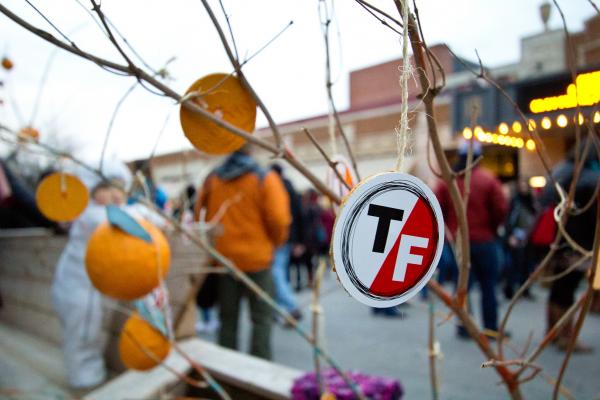The True/False film festival in Columbia, Mo., likes to bill itself as “different.” And it is — the intimate weekend-long documentary fest has a well-earned reputation as a place where anything can happen: Here you’ll find award-winning directors hobnobbing with writers and college students over brunch, and accountants and lawyers who transform themselves, Cinderella-style, into flamboyantly dressed volunteers.
But Columbia’s festival is unique in another way, one that’s more important than simple aesthetics: True/False also focuses on the unifying power of story.
Over its 13 years of existence, the festival has been committed to promoting the idea that introducing audiences to stories wildly different from their own expands our understanding of the human experience.
In a move that feels appropriate for an election year — and for a festival set in a town where racial tensions have recently come to the fore (Columbia is the site of the ongoing Concerned Student 1950 protests ) — this year’s slate of films featured a distinct social justice emphasis. Some of the topics addressed in this year’s lineup included the criminal justice system, domestic and international poverty, and the treatment of women, among other unifying themes.
The Prison in 12 Landscapes, which made its world premiere at True/False, was one of the festival’s surprise hits. Director Brett Story’s film uses a series of vignettes to tackle the topics of mass incarceration and the prison industrial complex. But rather than explore the lives and stories of prisoners, Story offers a more expansive, multifaceted approach by showing the ways in which prisons affect facets of everyday life outside of them. Scenes range from a small town in Appalachia hoping a prison will bring jobs to the area, to Quicken Loans’ enclave of gentrification in downtown Detroit, to prisoners trained to fight forest fires in California.
In Starless Dreams, director Mehrdad Oskouei also presents a picture of incarceration, but in a very different setting. The film takes viewers inside a female juvenile detention center in Tehran to examine the collective community and individual stories of the young women serving time there. All of them have committed serious crimes — drug trafficking, theft, even manslaughter. But Oskouei’s revealing interviews with the girls show them to be scarred and vulnerable, living in a society that gives them very little power to escape abusive situations.
Many of the girls in the film have been molested, or forced into criminal activity by husbands, fathers, or brothers. Though these young prisoners desire freedom, seeing their bond with each other and the uncertainty they express about their outside lives makes their eventual release not a moment of joy, but a moment of concern. It’s a heartbreaking, emotionally wrenching experience — of the kind that can take a passive viewer and turn them into an activist.
A more hopeful (but still harrowing) perspective came from Sonita, this year’s recipient of the festival’s True Life Fund, which collects donations from sponsors and festival goers each year to give to the subject of the winning documentary. Sonita Alizadeh is a talented aspiring rapper from Afghanistan who uses her music to campaign against the practice of child marriage, while trying herself to escape being sold into marriage by her family. The True Life Fund, sponsored in part by The Crossing, a Columbia-based Evangelical Presbyterian Church, gathered funds to help Sonita’s day-to-day life (she’s currently studying at a music academy in Utah). As of this writing, donations to the fund were still incoming.
Some of the films at True/False were making their debut. Others came from successful runs at Sundance and the Berlin International Film Festival. Regardless of pedigree, however, they introduce important ideas and conversations about art, justice, and storytelling that carry through from the festival and out into the world. It’s as much an opportunity to get a glimpse of future award winners as it is a chance for wider audiences to see films they might not otherwise encounter.
Got something to say about what you're reading? We value your feedback!

